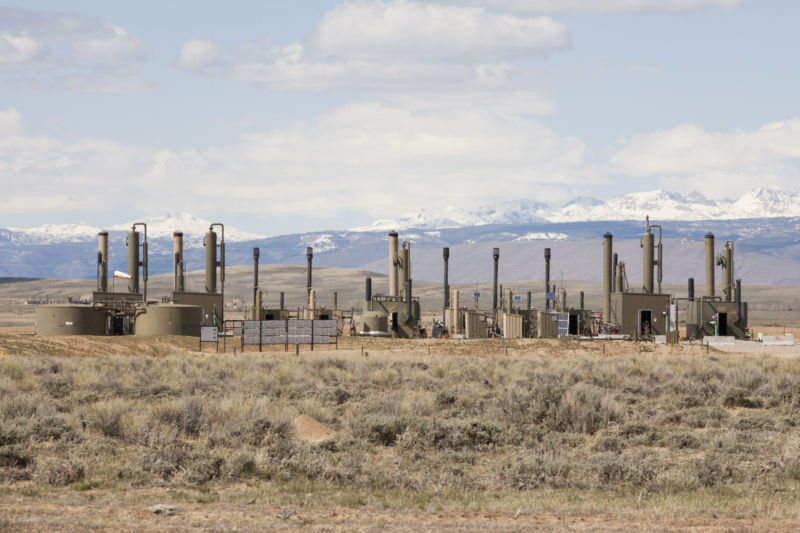Study: US oil and gas methane emissions have been dramatically underestimated

Enlarge / PINEDALE, WY - MAY 3: A natural gas facility stands on the Pinedale Anticline, on May 3, 2018 in Pinedale, Wyoming. (Photo by Melanie Stetson Freeman/The Christian Science Monitor via Getty Images) (credit: Getty Images)
The US has been dramatically underestimating methane emissions from oil and gas operations, according to a new study published in Science on Thursday. The study, conducted by the Environmental Defense Fund and 15 partner universities, asserts that methane emissions from oil and gas production are likely 63 percent higher than what the Environmental Protection Agency has reported.
The discrepancy stems from the way methane is measured and monitored, the authors suggest. Methane leakages are measured at known intervals and at specific parts of equipment, without verification of the leak volume at the facility as a whole. This allows the industry to avoid counting any surprise leakage events, which the authors claim are more common than not.
The results are concerning because methane is a potent greenhouse gas that has more of a warming effect in the atmosphere than carbon dioxide, part for part. On the other hand, methane is shorter lived in the atmosphere than carbon dioxide, so restricting its escape can have positive short-term effects on warming.
Read 13 remaining paragraphs | Comments